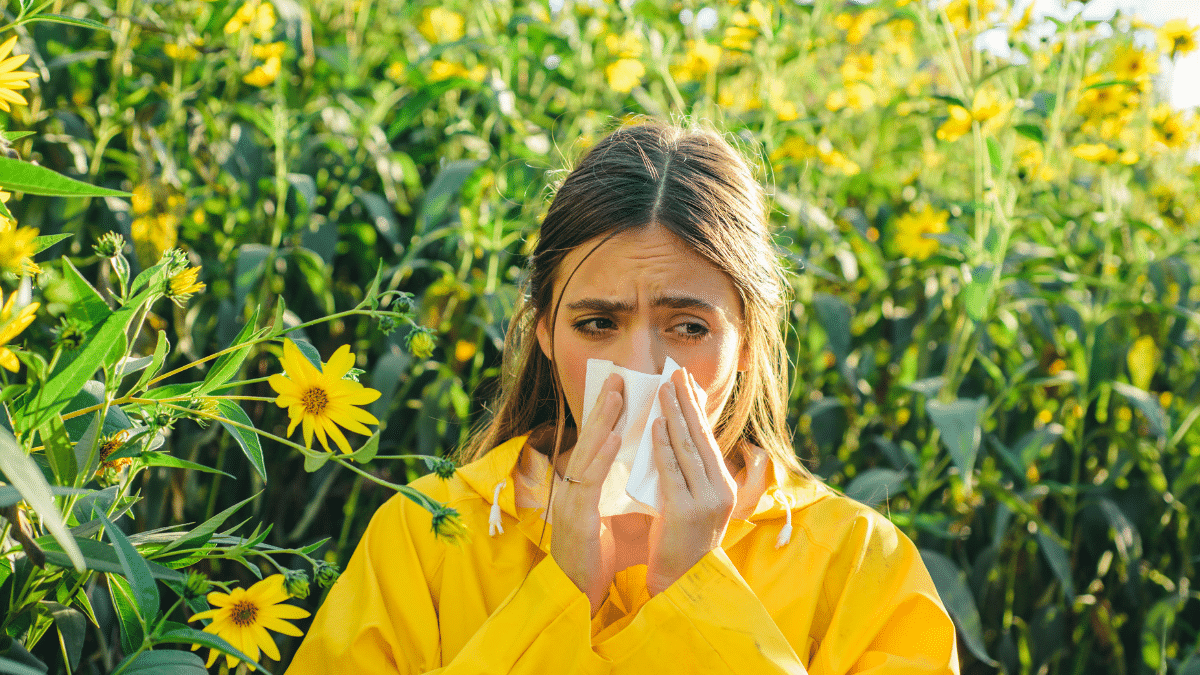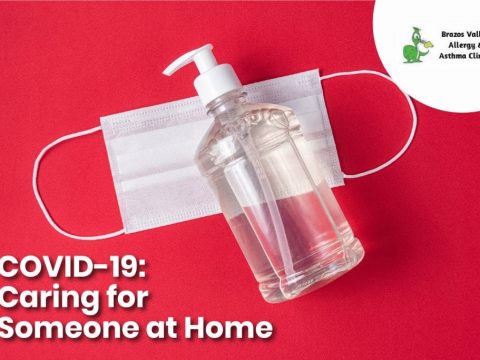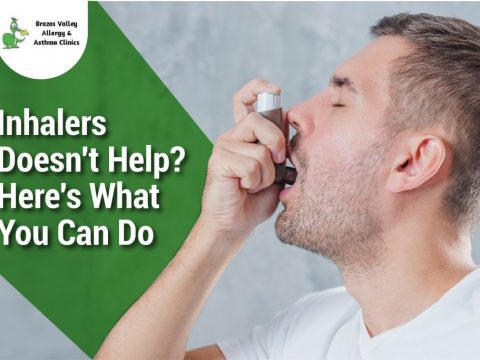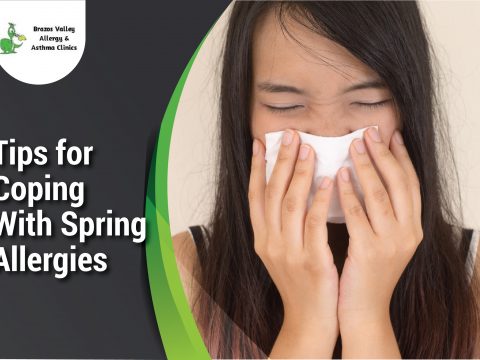- 979-485-9287
- office@bvallergy.com
-
 979-251-7804
979-251-7804
From Outdoors to Indoors: Managing Summer Allergies Effectively

Everything You Should Know Before Starting Xolair for Allergies
June 24, 2025
Summer Allergens in the Brazos Valley: What You Need to Know
August 26, 2025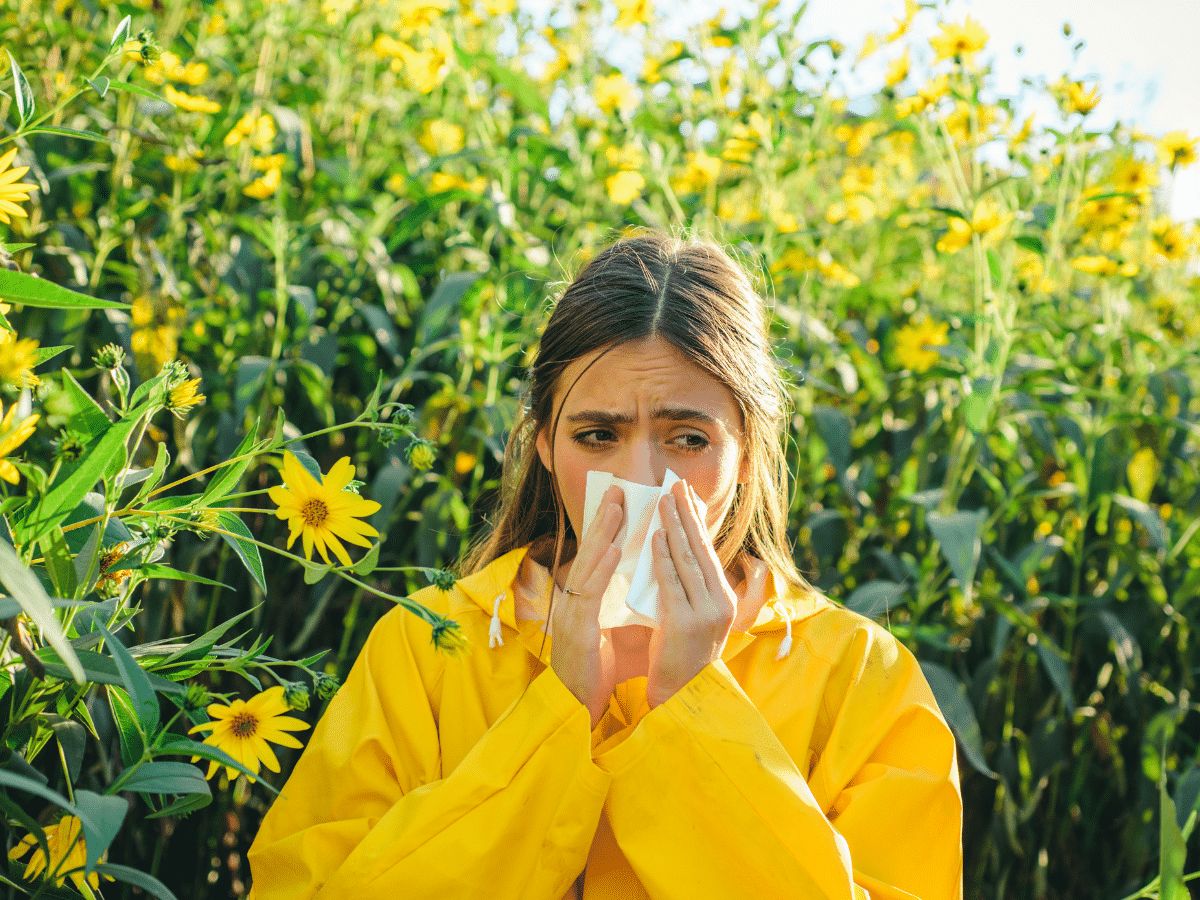
You know Texas summer is in full swing when seasonal allergies are wreaking havoc across the state once more. And when you think you’re safest at home, summer allergies can somehow sneak their way indoors.
Tell you what? We’re going to let you in on some tips to help you manage those nasty summer allergy symptoms so you can get that well-deserved relief at home and outdoors.
However, when allergies become impossible to manage on your own, it’s always best to seek help from an allergy specialist. It’s a more effective course of action than simply enduring and hoping the condition somehow goes away.
Talk to a Reliable Allergy Specialist in Texas!
Understanding Summer Allergies: Causes & Common Triggers
If you’ve been to any region in Texas, there’s one thing that seems impossible to avoid: pollen. It’s easy to think it’s only a problem outdoors, but there’s a whole host of things that could trigger your indoor allergies, too.
In Texas, common allergy triggers in the summer include:
- Pollen from bluegrass, Bermuda, and timothy grasses
- Pollen from weeds like ragweed and pigweed
- Mold spores that thrive in warm, humid conditions
Other allergens are also present year-round, so preventing flare-ups can be quite the challenge. That’s why we’re here to help you strategize and develop the right habits that have worked for many of our patients at Brazos Valley Allergy & Asthma Clinics.
If you’ve been scratching your head about how to control allergies in summer, we recommend starting with the one place you’re always supposed to find relief: your home.
Let’s go over a few pointers to help you find and maintain allergy relief at home.
Indoor Allergy Management Tips
Indoor allergy prevention is not rocket science, but it does require some equipment and consistency. Our advice here is not limited to summer allergy management; it is something you can maintain all year round for lasting allergy relief at home.
- Regularly clean and vacuum your home. Doing so will significantly reduce the accumulation of dust and mold, the two major allergens commonly found inside homes in Texas.
- Maintain good bedroom hygiene. In addition to maintaining personal hygiene, regularly washing and changing your bedding is crucial if you have pets, as your furry companions can carry allergens like dander or saliva.
- Use air cleaners with HEPA filters. An air purifier equipped with a high-efficiency particulate air (HEPA) filter improves air quality in your home by removing pollen, mold spores, dust mites, and pet dander.
- Keep your windows closed. Admittedly, this is not our favorite either. We love fresh air as much as anyone does, but with rampant seasonal allergens, it’s best to close your windows to keep airborne triggers out of the house.
Additionally, keep your medicine kit well-stocked with saline nasal rinses to help flush allergens from your nasal passages, especially when you can’t avoid them. This kit will help relieve congestion as needed.
It’s easier to control allergens indoors, but you can’t stay inside forever. There will always be something, like important tasks or events, that may compel you to leave your home. This brings us to the best ways to manage outdoor allergies.
Outdoor Allergy Management Tips
Summer allergies in Texas can already be quite challenging for residents, particularly with the state’s warm climate, long growing seasons, and the presence of allergens throughout the year.
Additionally, ozone pollution is worse during Texas summers, often exacerbating outdoor allergies. Unlike the indoors, the world outside is much more challenging to control. It doesn’t mean you’re defenseless, though, as you can still take effective steps to reduce your exposure to allergens.
- Wear a mask. Face masks can block pollen, mold spores, and air pollutants like dust and smoke. You can opt for an N95 mask because it can filter even smaller particles, but a standard surgical mask is still very effective at blocking allergens.
- Wear sunglasses. Besides protecting you from the harsh rays of the sun, sunglasses can also protect your eyes from pollen, reducing irritation and discomfort.
- Keep the grass short. Mowing frequently can help prevent grasses from flowering and, in turn, releasing pollen. However, outdoor chores are especially challenging for people with more severe allergies. Don’t hesitate to hire someone to help you, especially during high pollen days.
- Monitor pollen counts daily. Limit or avoid outdoor activities during peak times, especially during midday when pollen levels are at their highest, to reduce pollen allergies.

When to See an Allergist: Recognizing Signs & Seeking Treatment
You’ve done the work. You’ve done everything in your power to manage your allergies. However, the allergens are sneaky, and you feel like you’re at your wits’ end. We hear you.
There are times when even the best preventive measures will still fall short. Over-the-counter antihistamines and nasal sprays usually provide relief, but sometimes, quick and temporary fixes aren’t enough.
Here are a few signs that it’s time to contact your doctor or see a specialist :
- Severe and Persistent Symptoms. Everyone experiences nasal congestion, sneezing, and itchy, watery eyes from time to time. But when it’s intense, persistent, and worst of all, does not improve with over-the-counter treatment, it’s time to seek professional help.
- Symptoms that disrupt or interfere with daily activities. It doesn’t stop with a delayed to-do list. We mean difficulty with sleeping, inability to concentrate, and perform routine tasks. If your symptoms consistently prevent you from performing your daily tasks effectively, consider visiting an allergy clinic in Texas for expert guidance and support.
- Respiratory Distress and Chronic Sinusitis. The moment your ability to breathe gets affected, it is more than just a passing problem. Facial pain, pressure, headache, or prolonged nasal congestion that lasts more than 10 days warrants a consultation with an allergy specialist. More so if you have asthma.
- Swelling of the throat or developing hives. The moment something in your body starts swelling severely, you need immediate medical attention. This may be your body signaling you that things are about to get bad fast. Do not wait for it to go away; administer epinephrine and go to urgent care immediately.
Don’t let your triggers control your seasons and your life. Take charge of your summer allergies and schedule an appointment with Brazos Valley Allergy & Asthma. We offer treatment options, such as Xolair and allergy drops. Our board-certified allergist, Dr. Paul Jantzi, will work with you to identify your triggers and tailor the best treatment for your allergies.
Get the Best Allergy Treatment Now!
Frequently Asked Questions
Will summer allergies worsen asthma symptoms?Yes. Generally, seasonal allergies can exacerbate asthma. An allergic reaction can trigger inflammation in your nasal passages, making it difficult for you to breathe properly. Paired with an asthma attack, the lack of proper airflow can lead to severe symptoms that require immediate medical attention |
Can I just take over-the-counter (OTC) medicine to treat summer allergy symptoms?Yes. Often, antihistamines are readily available and effective, but it depends on the severity of the symptoms, which can vary from person to person. If OTC summer allergy treatments do not relieve your symptoms, consult an allergist who can evaluate you and tailor your prescription. |
Will OTC allergy treatments interfere with my maintenance medicine?Yes. It is a general rule for people with conditions like hypertension, heart disease, and liver or kidney disease to be extra careful with OTC allergy drugs. Always consult an allergist when taking medications so they can carefully tailor your treatment to avoid any unwanted or harmful effects. |

